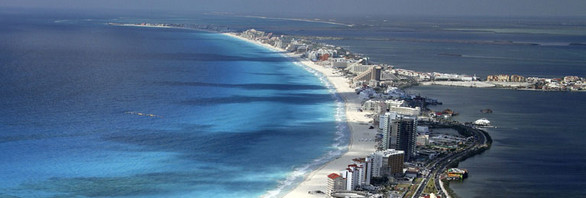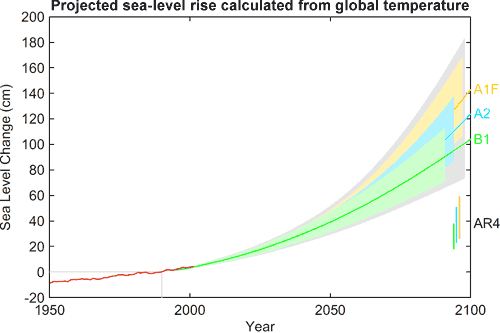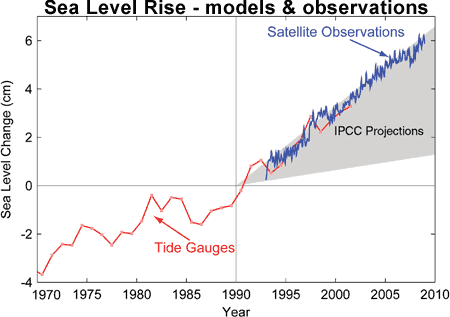USGS reports sea-level rise accelerating in Atlantic coast of North America

Rates of sea level rise are increasing three-to-four times faster along portions of the U.S. Atlantic Coast than globally, according to a new U.S. Geological Survey report published in Nature Climate Change.
Since about 1990, sea-level rise in the 600-mile stretch of coastal zone from Cape Hatteras, N.C. to north of Boston, Mass. — coined a “hotspot” by scientists — has increased 2 – 3.7 millimeters per year; the global increase over the same period was 0.6 – 1.0 millimeter per year.
Based on data and analyses included in the report, if global temperatures continue to rise, rates of sea level rise in this area are expected to continue increasing.
The report shows that the sea-level rise hotspot is consistent with the slowing of Atlantic Ocean circulation. Models show this change in circulation may be tied to changes in water temperature, salinity and density in the subpolar north Atlantic.

Though global sea level has been projected to rise roughly 0.6 – 0.9 m (2 to 3 feet) or more by the end of the 21st century, it will not climb at the same rate at every location. Differences in land movements, strength of ocean currents, water temperatures and salinity can cause regional and local highs and lows in sea level.
“This basically adds 8 to 12 inches above the global averages over the next 100 years,” said Peter Howd, a co-author of the report. “Chronic flooding issues now will get worse, that’s what people will see, but local people already know the areas that flood are getting worse,” he said. “It’s not news to them.” “What we will likely see is these areas that almost flood during bad storms now, will chronically flood,” said Howd.

Maine is at the northern end of the hotspot zone, and impacts are ameliorated because of the rocky coasts, larger tides, and general hilly topography along the shore, said Howd.
The report shows that the sea-level rise hotspot is consistent with the slowing of Atlantic Ocean circulation, which scientists theorize could be related to changes in water temperature, salinity and density in the polar regions of the north Atlantic.
USGS report “Hotspot of accelerated sea-level rise on the Atlantic coast of North America,” was published in the journal Nature Climate Change.

Commenting rules and guidelines
We value the thoughts and opinions of our readers and welcome healthy discussions on our website. In order to maintain a respectful and positive community, we ask that all commenters follow these rules.